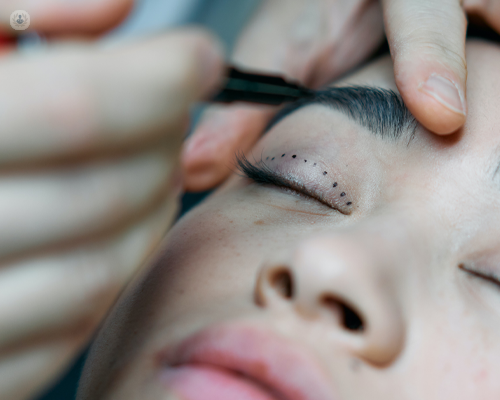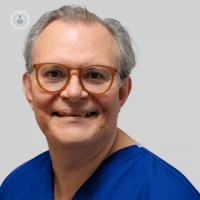How to recover like a pro: Essential tips for a smooth post-plastic surgery experience
Escrito por:Undergoing plastic surgery is a major decision that can enhance your appearance and boost your self-confidence. However, just as important as the procedure itself is the recovery process. A smooth, healthy recovery will not only help you heal faster but will also ensure the best possible results. Here with some essential tips to help you recover like a pro after plastic surgery is leading plastic and reconstructive surgeon Mr David Gateley.

Follow your surgeon's instructions
Your surgeon will provide detailed post-operative care instructions tailored to your specific procedure. This will likely include guidelines for medications, wound care and physical activity. Make sure you fully understand these instructions and follow them meticulously. If you have any questions or concerns, don’t hesitate to reach out to your surgeon for clarification. Properly adhering to your doctor's recommendations is the foundation of a successful recovery.
Get plenty of rest
Rest is one of the most critical aspects of recovery. Surgery, no matter how minor, places stress on your body, and proper rest gives your body the time it needs to heal. Plan for at least a few days to a week of downtime, depending on the complexity of the procedure. Set up a comfortable resting area in your home with plenty of pillows, easy access to water and any prescribed medications.
Take your pain medications as prescribed
Pain management is a key part of recovery, especially in the first few days post-surgery. Take any prescribed pain medications as instructed to control discomfort and prevent pain from becoming overwhelming. If you are concerned about managing pain or prefer not to take prescription painkillers, talk to your surgeon about alternative options, such as over-the-counter medications, that might be effective in your case.
Eat a balanced, nutrient-rich diet
Your body needs the right fuel to heal properly, and nutrition plays a critical role in the recovery process. Focus on a balanced diet rich in lean protein, vegetables, fruits, and whole grains. Protein is especially important for tissue repair, while vitamins and minerals such as vitamin C, vitamin A and zinc help strengthen your immune system and support the healing process. Stay well-hydrated by drinking plenty of water throughout the day, which can also help reduce swelling and flush out toxins from your body.
Wear compression garments (if recommended)
For many types of plastic surgeries, such as liposuction or tummy tucks, your surgeon may advise you to wear compression garments. These garments help reduce swelling, promote proper blood circulation and support the healing tissues. Follow your surgeon's guidelines on how long to wear these garments to ensure you achieve the best results and avoid complications like fluid buildup.
Keep your incisions clean and dry
Proper wound care is essential for preventing infection and minimising scarring. Your surgeon will give you specific instructions on how to clean and care for your incisions. Be sure to follow these steps carefully. Avoid getting your incisions wet until you're cleared to do so, and keep an eye on the healing process. If you notice any signs of infection - such as redness, swelling, warmth, or unusual discharge - contact your surgeon right away.
Stay active, but don’t overdo it
While rest is vital during the early stages of recovery, light movement is also important to promote circulation and prevent complications like blood clots. Depending on your procedure, you may be encouraged to get up and walk around gently within a day or two. However, avoid strenuous exercise, heavy lifting and intense physical activities until your surgeon gives you the green light. Gradually ease back into your normal routine to avoid putting undue stress on your healing body.
Sleep with your head elevated
For facial plastic surgeries (like rhinoplasty, facelifts, or eyelid surgery), it's important to sleep with your head elevated for the first few days or weeks post-surgery. Keeping your head elevated can help reduce swelling and fluid retention. You can use extra pillows or sleep in a reclining chair to maintain an elevated position while sleeping.
Avoid smoking and alcohol
Both smoking and alcohol can impede your body’s natural healing process. Smoking reduces blood flow to your tissues and can delay healing, increase your risk of infection, and negatively affect the outcome of your surgery. Similarly, alcohol can interfere with medications and dehydrate your body. If you're a smoker, it's strongly recommended that you quit for several weeks before and after your surgery to promote optimal recovery.
Be patient with your recovery timeline
Healing takes time, and it’s important to be patient with the process. While some improvements will be noticeable shortly after surgery, full results may take weeks or even months to fully manifest, depending on the procedure. Swelling, bruising and minor discomfort are all part of the normal recovery process, so don’t be discouraged if you don’t see immediate results. Trust the timeline provided by your surgeon, and allow your body to heal at its own pace.
Attend all follow-up appointments
Follow-up appointments are crucial to your recovery and ensure that you’re healing properly. Your surgeon will monitor your progress, check for any complications, and answer any questions you may have about your recovery. Don’t skip these appointments, even if you feel that you're healing well - your surgeon may detect subtle issues that could affect your results in the long run.
Manage your expectations
Finally, it’s essential to have realistic expectations about your recovery and the results of your surgery. Plastic surgery can deliver transformative results, but perfection is not immediate, and swelling or scarring may temporarily alter the final outcome. Understand that your body needs time to settle into its new shape, and that patience will lead to better satisfaction as the healing process unfolds.
Conclusion
Recovering after plastic surgery requires a combination of following your surgeon’s instructions, getting enough rest, maintaining a healthy lifestyle, and being patient with the healing process. By paying attention to these essential tips and being mindful of your body’s needs, you can help ensure a smooth and successful recovery that enhances your surgical results for years to come.
Arrange a consultation with Mr Gately via his Top Doctors profile.


